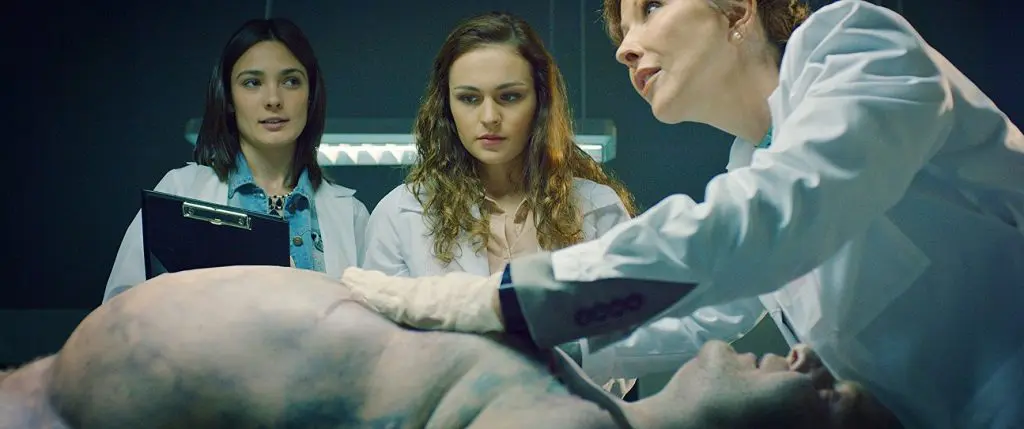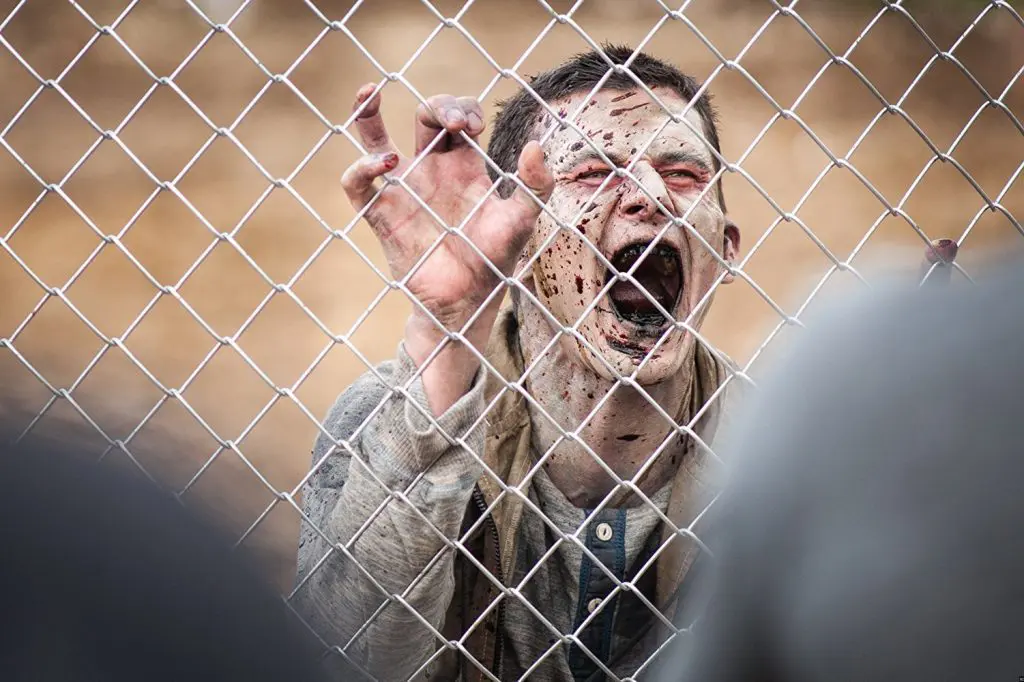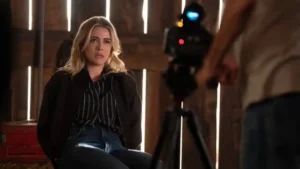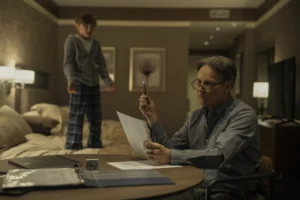Day of the Dead: Bloodline is a remake of 1985’s Day of the Dead. Which shouldn’t come as much of a surprise, I guess. But with titling practices being what they are these days, it deserves some clarification. Plus the subtitle makes it sound like a sequel.
Alas, it isn’t. It’s a retelling of one of George A. Romero’s classic Night of the Living Dead entries. Kind of, anyway. It feels a bit like a remake in reverse. It isn’t the original with some contemporary tweaking; it’s any old zombie film that makes one or two nods in the original’s vague direction. If that constitutes a “remake” in 2018, fair enough. Who am I to argue?
He did. The father of the zombie genre died of lung cancer last July. Let’s hope that he rests a little more peacefully than his necrotic creations, as if he wakes up and sees the state of his legacy these days, someone’s going to have some explaining to do.
It’s the end of the world. Zoe (Sophie Skelton), a former medical student, is now a doctor at a refugee camp with a large military presence. She works on “rotter” research and gives the humans there ibuprofen. She’s bonking one of the soldiers (the most handsome one, obviously) and says things like, “It’s a medical certainty.”
We’ve already met Zoe. You can find pretty much the exact same character in countless other films, but we’ve already met her in this one, too. Day of the Dead: Bloodline opens five years before this. The flashback is mostly designed to introduce Max (Jonathan Schaech), a creepy former patient of Zoe’s who carved her name into his arm, has some kind of weird super-blood, and tried to rape her at a party. He’s this film’s version of the original’s Bub. We’ll get to that in a moment.
Anyway, Zoe has a bright idea. There’s a sick kid, and the kid needs “meds”. Where’re you most likely to find such things? In a hospital. And where did Zoe formerly work? You guessed it. That’s the kind of high-level intellectualism that saves lives.

It’s that kind of film, I’m afraid. This is all happening to reintroduce Max, who, surprisingly, is still chilling at the hospital. Now, thanks to his super-blood, he’s a super-zombie. Which, by genre law, gives him the potential saviour of all humankind. Fancy that. The idea that Zoe’s sociopathic rapist stalker might be her saviour is, I suspect, some poor attempt at commentary on one thing or another. It isn’t exactly clear. Perhaps it would land a bit better if Zoe wasn’t a breathtaking nonentity with no semblance of a personality to be found either in the script or as performed.
To be honest, I was rooting for Max.
Oh, yeah, he’s Bub. Kind of. They chain him up and do experiments on him in the hope of synthesizing a cure from his manky innards. The difference is that Bub was mostly sympathetic. He’d do cute things like listen to music and salute people. Max is fulfilling the same kind of role, but the only relationship he has to his former self is that he’s still an obsessive rapist. His real role in the narrative is to function as a kind of Jason Voorhees-style serial killer, slinking around the base’s vents and picking people off. He even does that thing where he grabs them by the ankle and drags them down a corridor.
There are a couple of well-constructed action beats and some surprisingly decent makeup work all things considered – but yeah, it’s bad. And it’s mostly boring, which is even worse. The noisy, messy climax isn’t even all that satisfying because the prologue was noisy and messy too, and that happened before you were actively rooting for all the characters to die.
I don’t know what kind of weird neural impulses make zombies continue to stagger along, giving the semblance of life when all their intelligence and identity and personality has long since drained from their peeled husks.
All I know is that zombie media seems to have contracted the same thing.




